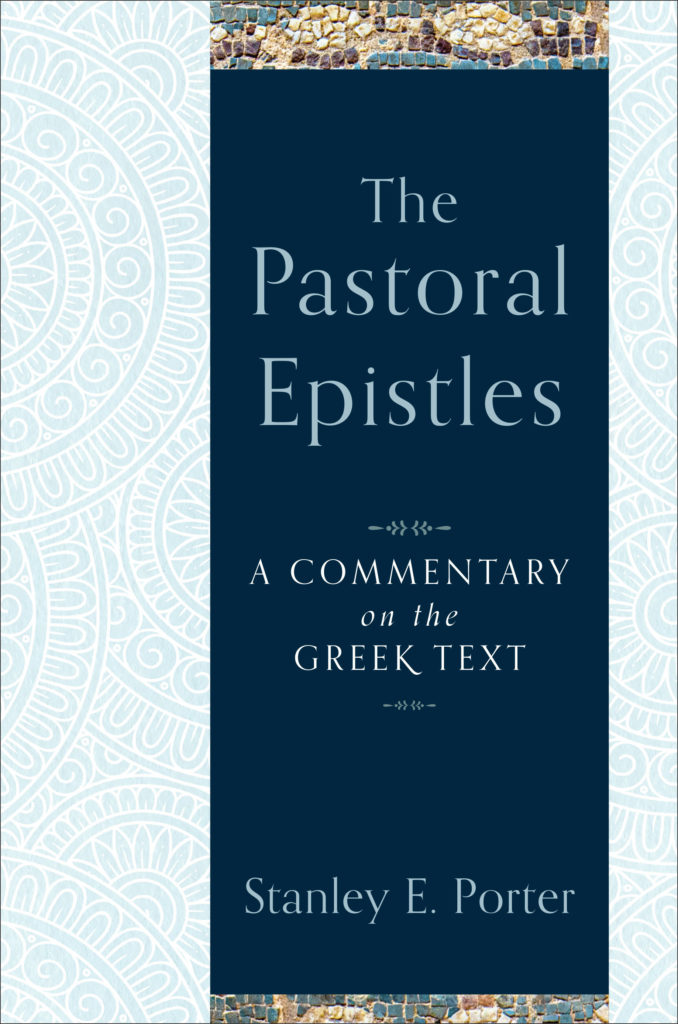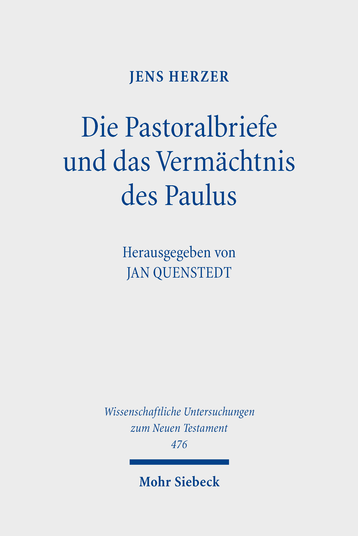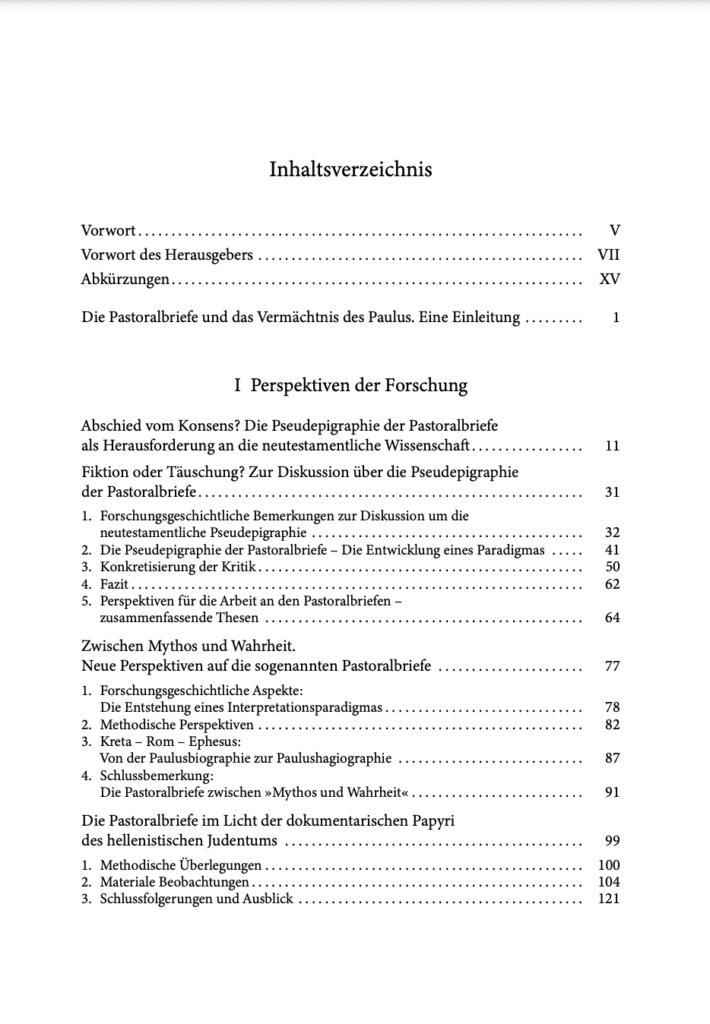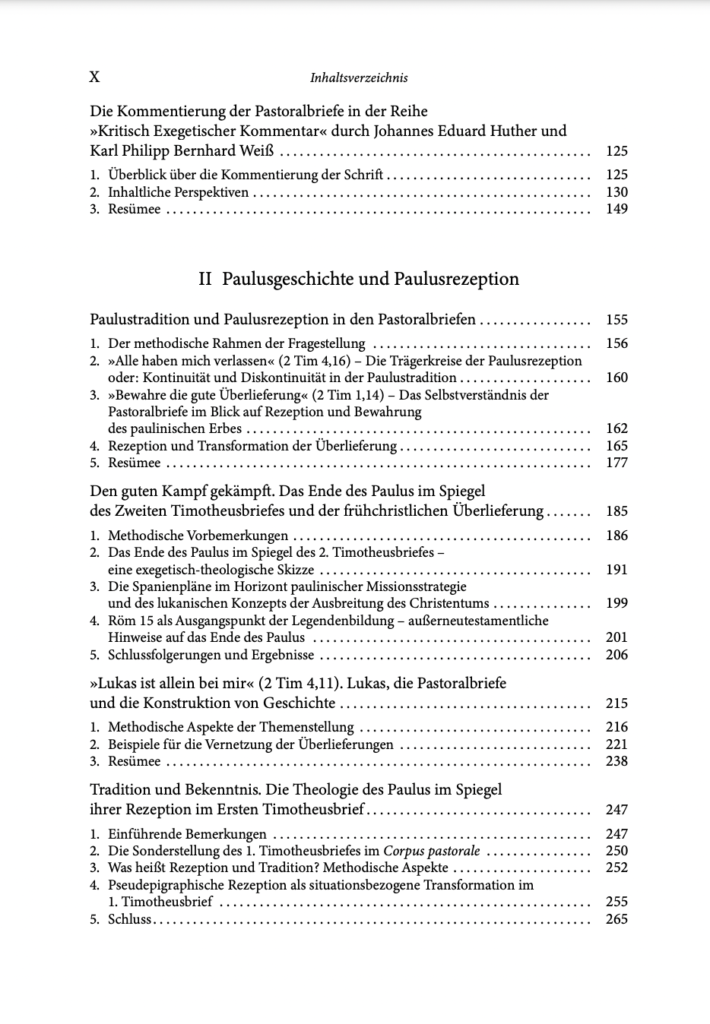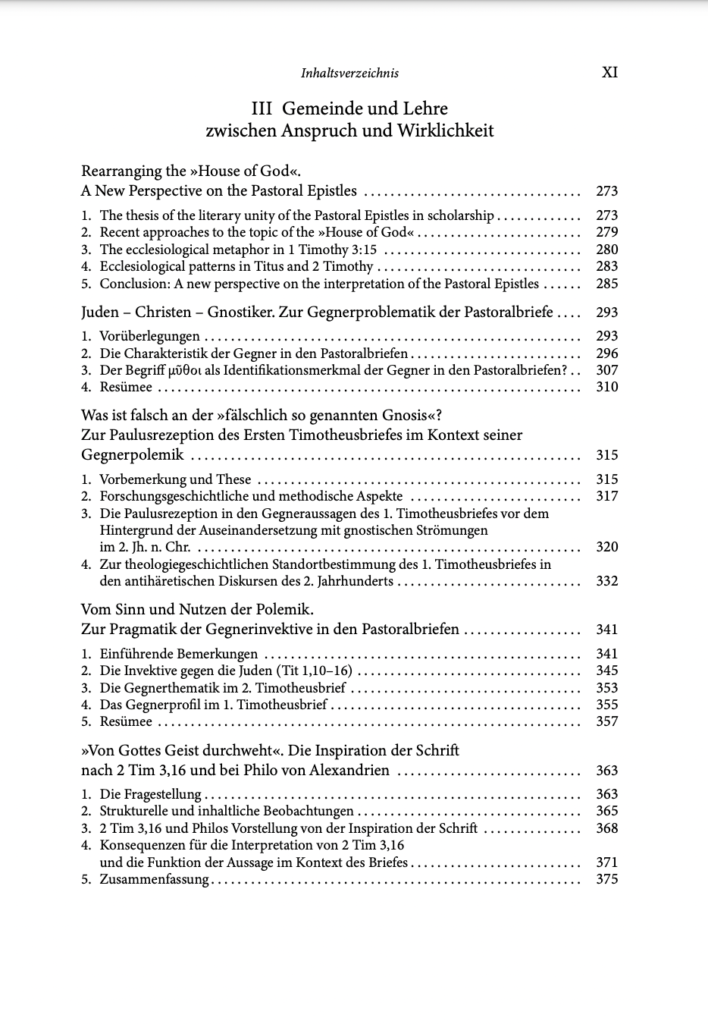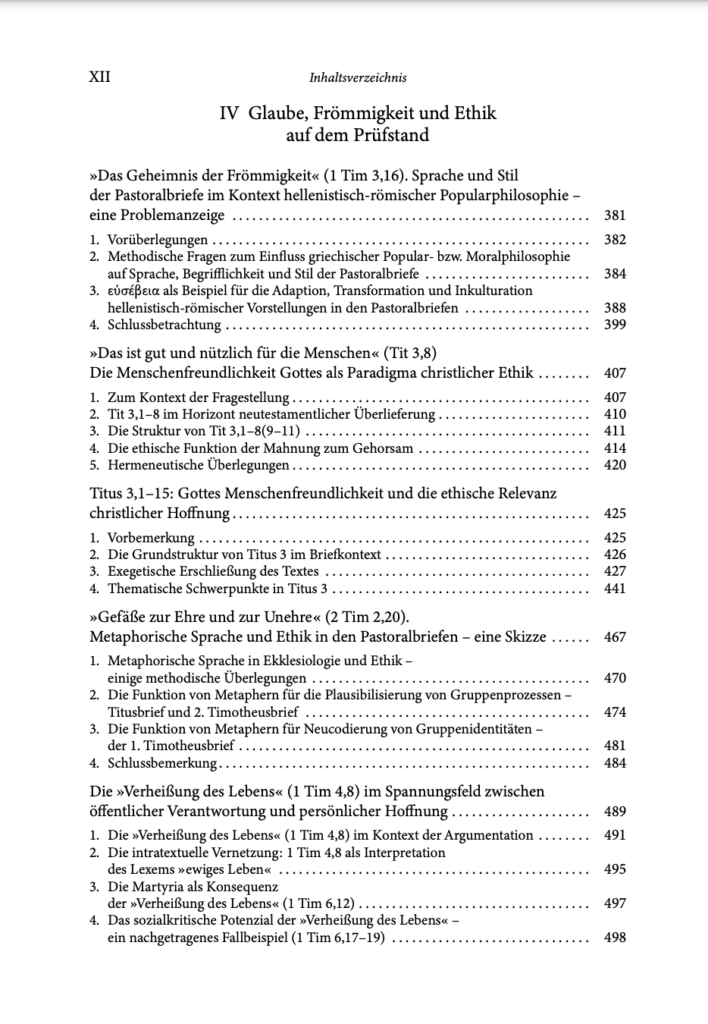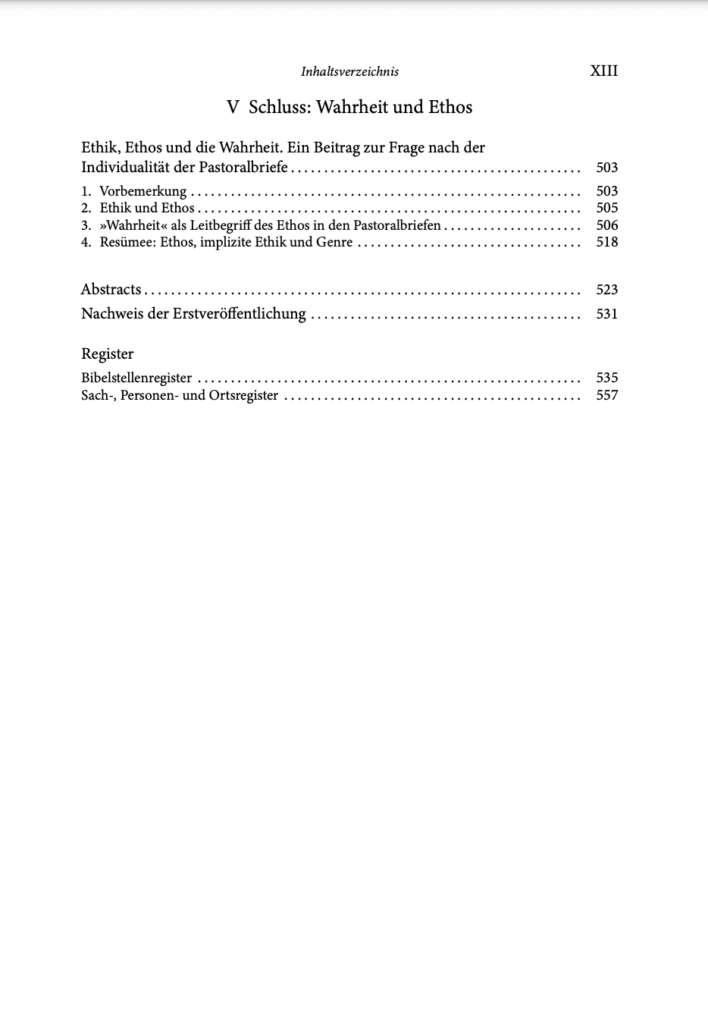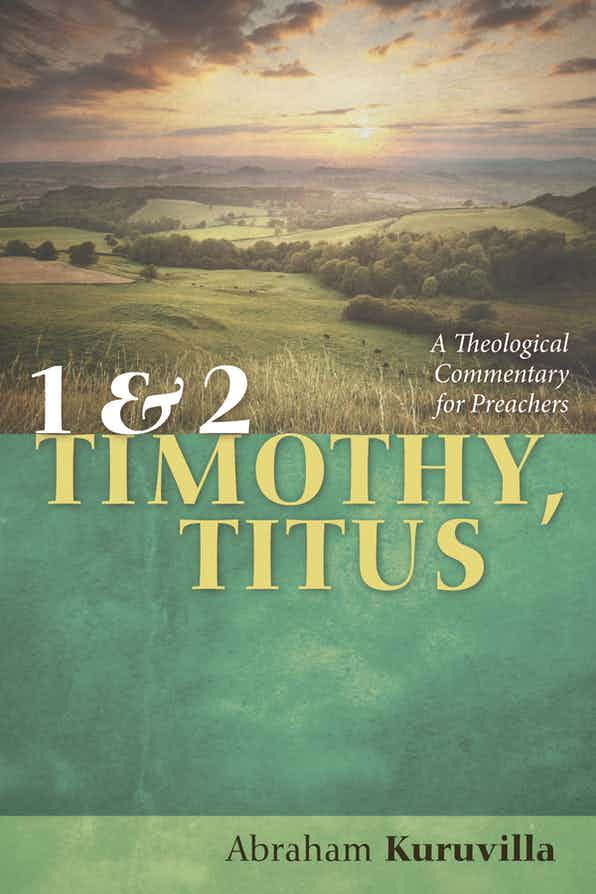The following entries in New Testament Abstracts 65.3 may be of interest to researchers in the Pastorals.
1002. Philippe Van den Heede. “La participation à la mort du Christ par le baptême (Rm 6,3–11): Une conception pré-paulinienne (Rm 6,8; 2 Tm 2,11).” Revue Biblique 128.1 (2021): 99–115. (notice)
1035. Raymond F. Collins. “Paul in the Pastoral Epistles: A Life Well Lived.” The Bible Today 59.5 (2021): 308–15.
1036. Mary Ann Getty. “Elders and Widows.” The Bible Today 59.5 (2021): 301–7.
1037. Romeo Popa. “Ethic als Vermittlung zwischen Generationen in den Pastoralbriefen.” Sacra Scripta 18.1 (2020): 70–96.
1038. Mary Schieferstein. “Formation, Deception, and Childbearing: Reading 1 Timothy 2:13–3:1a in Light of Genesis 2–4.” Presbyterion 47.1 (2021): 112–20.
1039. Edward Mazich. “Lois and Eunice: Faith of Our Mothers.” The Bible Today 59.4 (2021): 242–48.
1040. T. Christopher Hoklotubbe. “Civilized Christ-Followers among Barbaric Cretans and Superstitious Judeans: Negotiating Ethnic Hierarchies in Titus 1:10–14.” Journal of Biblical Literature 140.2 (2021): 369–90. (notice)
1068. Michael Theobald. “Kirche im Neuen Testament.” Zeitschrift für Theologie und Kirche 117.4 (2020): 377–402. [note Pastorals on pp. 406–7]
(p. 437) Abraham M. Antony and Jose Varickasseril, eds. An Affable Pastor: A Commemorative Volume in Honour of Archbishop Dominic Jala SDB. Shillong, India: Vendrame Institute Publications, 2020. [note the article by Abraham M. Antony on the credentials of the episkopos in 1 Tim 3:1–7 in the context of the Pastoral Epistles]
(p. 438) Benjamin H. Dunning, ed. The Oxford Handbook of New Testament, Gender, and Sexuality. Oxford Handbooks. Oxford: Oxford University Press, 2019. [note Jorunn Økland, “Pauline Letters,” pp. 315–32, with the Pastorals discussed on pp. 325–26]
(p. 444) Robert W. Wall. Studies in Canonical Criticism: Reading the New Testament as Scripture. Library of New Testament Studies 615. London: T&T Clark, 2020. [note “Reading the Pauline Pastorals in Canonical Context,” pp. 93–126, which is excerpted from Wall and Steele, 1 and 2 Timothy and Titus]
(p. 454) Martin Wright. The Dividing Wall: Ephesians and the Integrity of the Corpus Paulinum. Library of New Testament Studies 646. London: T&T Clark, 2021.
(p. 455) Jaime Clark-Soles. Women in the Bible. Interpretation Resources for the Use of Scripture in the Church. Louisville: Westminster John Knox, 2020. [note chap. 10, “The Muting of Paul and His Female Coworkers: Women in the Deutero-Pauline Epistles,” pp. 281–306]
(p. 457) E. Elizabeth Johnson. Ecclesiology in the New Testament. Core Biblical Studies. Nashville: Abingdon, 2020.
(p. 457) Dorothy A. Lee. The Ministry of Women in the New Testament: Reclaiming the Biblical Vision. Grand Rapids: Baker Academic, 2021. [*Note the treatments of 1 Tim 2:11–15; 3:2–12 in chap. 6, “Paul’s Letters: Key Texts”]
(p. 458) William A. Simmons. The Holy Spirit in the New Testament: A Pentecostal Guide. Downers Grove, IL: IVP Academic, 2021. [note chap. 13: “The Holy Spirit in the Pastoral Epistles: The Spirit of Power, Love and Self-Control,” 161–72]
(p. 467) Karl-Heinrich Ostmeyer and Adrian Wypadlo, eds. Das Ziel vor Augen: Sport und Wittkampf im Neuen Testament und seiner Umwelt. Beiträge zur Wissenschaft vom Alten und Neuen Testament 226. Stuttgart: Kohlhammer, 2020. [note Thomas Söding, “Der Sport des Apostels: Die Dialektik von Kampf und Seig auf dem Weg von Phil 3 zu 2 Tim 4,” pp. 81–100]

